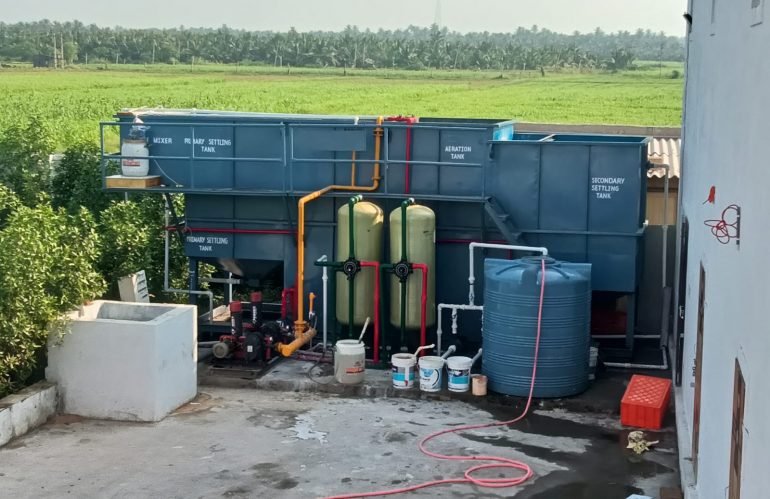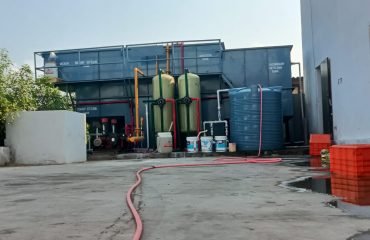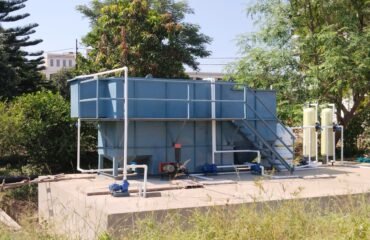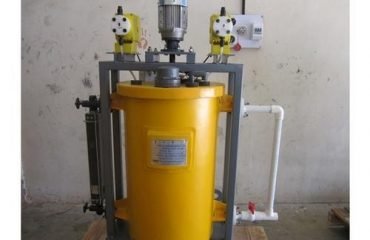In the bustling metropolis of Kolkata, the efficient management of sewage and wastewater is vital to enhance the quality of life for its residents and foster sustainable urban development. Sewage Treatment Plants (STPs) play a pivotal role in treating wastewater, ensuring responsible disposal, and mitigating the environmental impact. This article explores the significance of STPs in Kolkata and their crucial role in promoting urban sustainability.
Understanding Sewage Treatment Plants
Sewage Treatment Plants, commonly known as STPs, are specialized facilities designed to treat domestic and industrial wastewater. They employ various physical, chemical, and biological processes to remove contaminants and impurities from sewage, making it safe for discharge into the environment or for potential reuse. STPs are indispensable for safeguarding public health, preserving natural water bodies, and supporting urban growth.
The Significance of STPs in Kolkata
Kolkata, known for its rich cultural heritage, historical landmarks, and vibrant arts scene, has been experiencing rapid urbanization and population growth. With expanding urban areas, the efficient management of sewage has become a critical concern. Here’s why STPs are of paramount importance in Kolkata:
- Environmental Conservation: Kolkata boasts a unique blend of historical architecture and natural beauty, including the Hooghly River. STPs ensure that sewage is treated effectively, preventing contamination of these essential natural assets and preserving the city’s environmental charm.
- Public Health: Ensuring the safe treatment of sewage is vital for protecting public health. STPs remove harmful pathogens and contaminants, reducing the risk of waterborne diseases and promoting the well-being of Kolkata’s residents.
- Regulatory Compliance: Municipal and environmental regulations mandate the treatment of sewage before discharge. STPs enable Kolkata to meet these legal obligations, ensuring compliance and averting potential legal consequences.
- Resource Management: Treated sewage can serve as a valuable resource for irrigation, landscaping, and industrial processes. STPs facilitate the controlled reuse of treated wastewater, conserving freshwater resources and promoting sustainability.
How STPs Operate
Sewage Treatment Plants employ a multi-stage process to treat wastewater efficiently. Here’s a simplified overview of the typical STP operation:
1. Primary Treatment
In the primary treatment stage, large solids are removed from the sewage through processes like screening and sedimentation. This initial step reduces the load on subsequent treatment stages.
2. Secondary Treatment
Secondary treatment involves biological processes where microorganisms break down organic matter present in the sewage. This step significantly reduces the biological oxygen demand (BOD) and chemical oxygen demand (COD) of the wastewater.
3. Tertiary Treatment
Tertiary treatment is an advanced stage that further refines the effluent to meet stringent quality standards. It may include processes like filtration, chemical treatment, and disinfection to remove any remaining impurities.
4. Discharge or Reuse
The treated sewage is either discharged into water bodies, adhering to regulatory guidelines, or made available for non-potable purposes, such as irrigation, cooling, or industrial processes.
Benefits of Sewage Treatment Plants
STPs offer numerous benefits for Kolkata and its residents:
- Environmental Preservation: STPs safeguard the city’s natural environment, ensuring that water bodies and green spaces remain unpolluted, contributing to a cleaner and more sustainable city.
- Public Health: By treating sewage effectively, STPs reduce the risk of waterborne diseases, promoting the well-being of Kolkata’s residents.
- Resource Efficiency: Treated wastewater serves as a valuable resource, diminishing the demand for freshwater and enhancing resource efficiency.
- Urban Sustainability: STPs are integral to Kolkata’s sustainable urban development, supporting the city’s growth while maintaining a high quality of life.
In Conclusion
Sewage Treatment Plants are essential components of Kolkata’s urban infrastructure. They play a vital role in ensuring that the city can continue to flourish as a cultural and economic hub while preserving its environment and public health. By prioritizing efficient sewage treatment, Kolkata can pave the way for a cleaner, greener, and more prosperous future.






